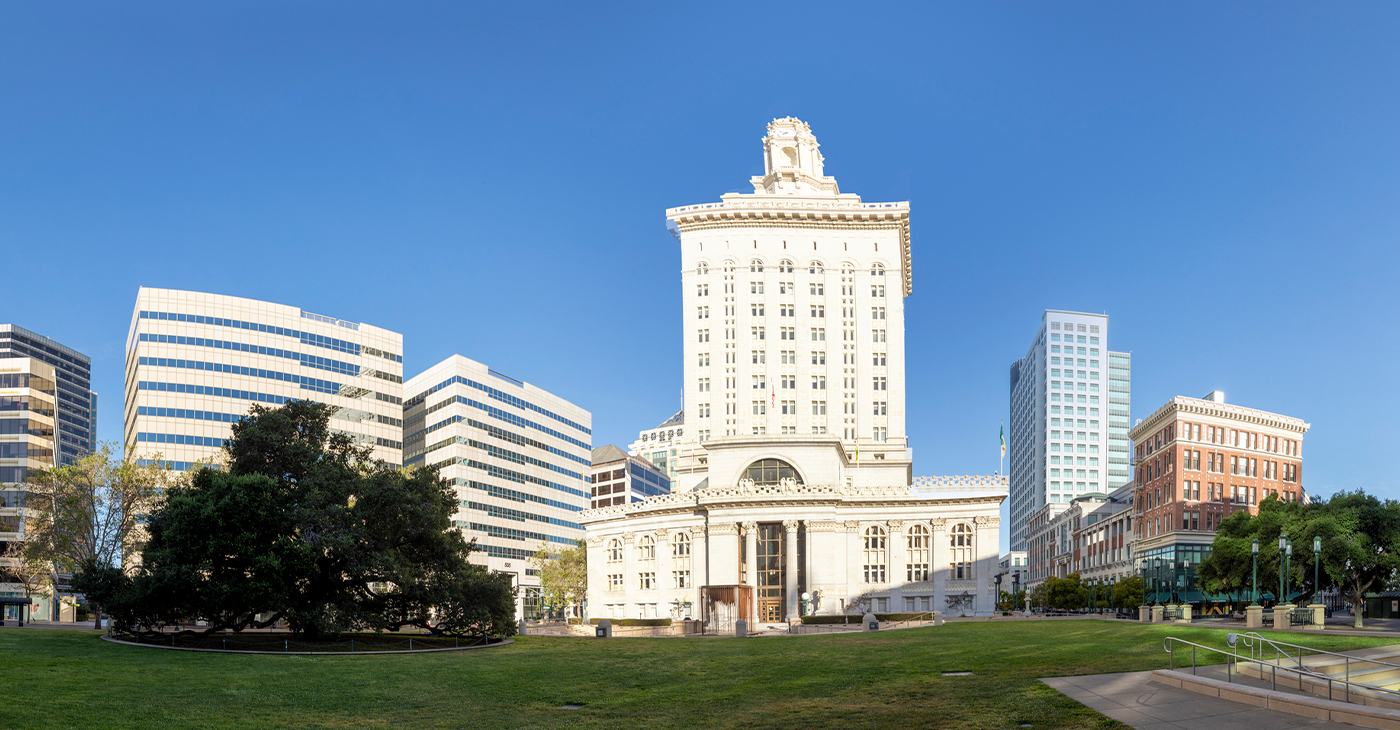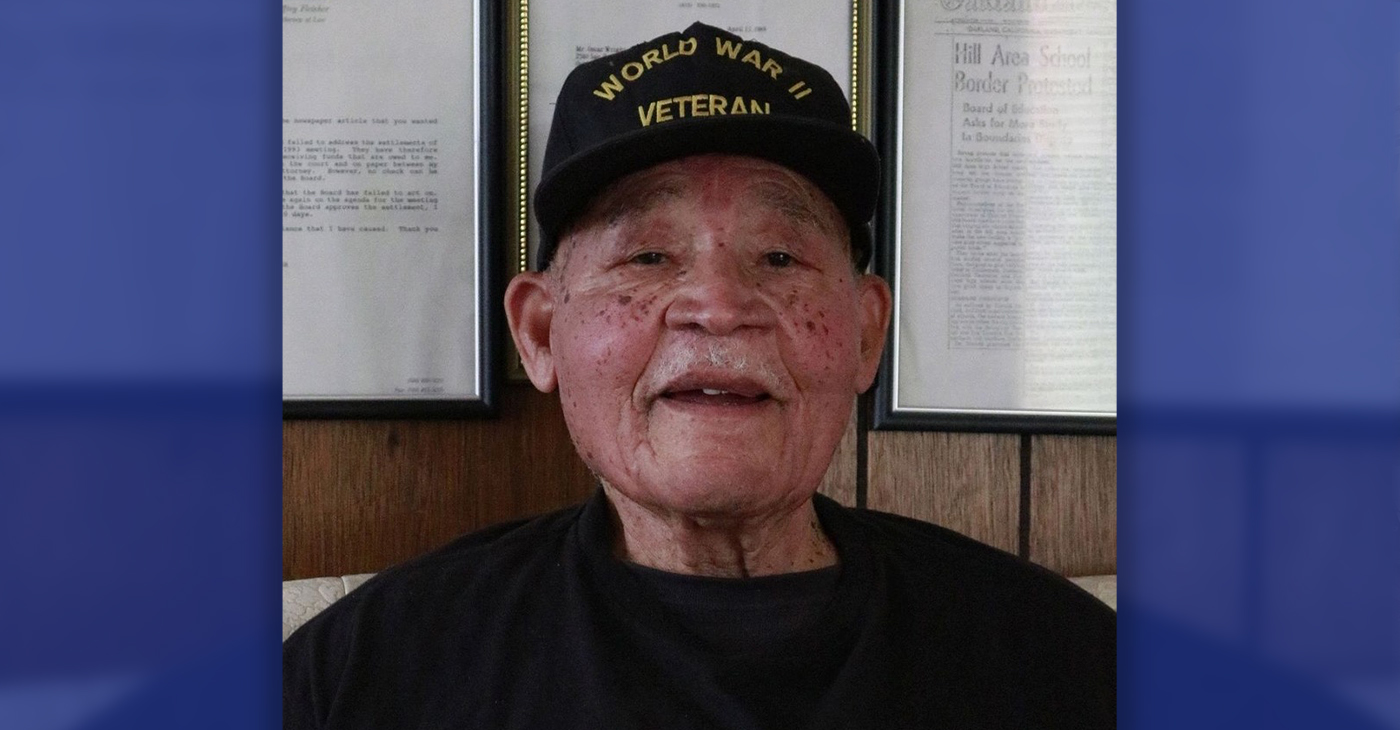Alameda County
Electric UPS Delivery Fleet Coming to Oakland, Richmond, and SF
The project will replace the current Class 6 UPS delivery trucks with ZE battery electric vehicles. It will also install chargers at the Bay Area logistics centers. In total, 40 vehicles and chargers are coming to the facility near Oakland, another 10 in San Francisco and 10 more in Richmond.

The Richmond Standard
A total of 60 UPS delivery trucks serving logistics centers in Oakland, Richmond, and San Francisco will be replaced with electric versions as part of a partnership between the delivery business and the Port of Oakland.
The Port will use a newly announced award of $10.5 million in Environmental Protection Agency grants and $5 million from UPS to advance the fleet conversion.
The project will replace Class 6 UPS delivery trucks with ZE battery electric vehicles. It will also install chargers at the Bay Area logistics centers. In total, 40 vehicles and chargers are coming to the facility near Oakland, another 10 in San Francisco, and 10 more in Richmond.
The project will feature opportunities for green career pathways through workforce development and training.
“The Port of Oakland is grateful for additional investments to transition freight equipment and infrastructure to zero emissions,” Colleen Liang, the Port’s director of environmental programs and planning.
Richmond Mayor Eduardo Martinez said the “bold investment” will curb pollution, protect public health and provide good-paying green jobs.
“The City of Richmond welcomes this bold EPA investment in zero-emission heavy-duty vehicles,” Martinez said in a statement.
For more information, see the 2024 EPA Clean Heavy-Duty Vehicle Grant Project.
Alameda County
Last City Council Meeting of the Year Ends on Sour Note with Big Budget Cuts
In a five to one vote, with Councilmembers Carroll Fife and Janani Ramachandran excused, the council passed a plan aimed at balancing the $130 million deficit the city is facing. Noel Gallo voted against the plan, previously citing concerns over public safety cuts, while Nikki Fortunato-Bas, Treva Reid, Rebecca Kaplan, Kevin Jenkins, and Dan Kalb voted in agreement with the plan.

By Magaly Muñoz
In the last lengthy Tuesday meeting of the Oakland City Council for 2024, residents expressed strong opposition to the much needed budget cuts before a change in leadership was finalized with the certification of election results.
In a five to one vote, with Councilmembers Carroll Fife and Janani Ramachandran excused, the council passed a plan aimed at balancing the $130 million deficit the city is facing. Noel Gallo voted against the plan, previously citing concerns over public safety cuts, while Nikki Fortunato-Bas, Treva Reid, Rebecca Kaplan, Kevin Jenkins, and Dan Kalb voted in agreement with the plan.
Oakland police and fire departments, the ambassador program, and city arts and culture will all see significant cuts over the course of two phases.
Phase 1 will eliminate two police academies, brown out two fire stations, eliminate the ambassador program, and reduce police overtime by nearly $25 million. These, with several other cuts across departments, aim to save the city $60 million. In addition, the council simultaneously approved to transfer restricted funds into its general purpose fund, amounting to over $40 million.
Phase 2 includes additional fire station brownouts and the elimination of 91 jobs, aiming to recover almost $16 million in order to balance the rest of the budget.
Several organizations and residents spoke out at the meeting in hopes of swaying the council to not make cuts to their programs.
East Oakland Senior Center volunteers and members, and homeless advocates, filled the plaza just outside of City Hall with rallies to show their disapproval of the new budget plan. Senior residents told the council to “remember that you’ll get old too” and that disturbing their resources will only bring problems for an already struggling community.
While city staff announced that there would not be complete cuts to senior center facilities, there would be significant reductions to staff and possibly inter-program services down the line.
Exiting council member and interim mayor Bas told the public that she is still hopeful that the one-time $125 million Coliseum sale deal will proceed in the near future so that the city would not have to continue with drastic cuts. The deal was intended to save the city for fiscal year 2024-25, but a hold up at the county level has paused any progress and therefore millions of dollars in funds Oakland desperately needs.
The Coliseum sale has been a contentious one. Residents and city leaders were originally against using the deal as a way to balance the budget, citing doubts about the sellers, the African American Sports and Entertainment Group’s (AASEG), ability to complete the deal. Council members Reid, Ramachandran, and Gallo have called several emergency meetings to understand where the first installments of the sale are, with little to no answers.
Bas added that as the new Alameda County Supervisor for D5, a position she starts in a few weeks, she will do everything in her power to push the Coliseum sale along.
The city is also considering a sales tax measure to put on the special election ballot on April 15, 2025, which will also serve as an election to fill the now vacant D2 and mayor positions. The tax increase would raise approximately $29 million annually for Oakland, allowing the city to gain much-needed revenue for the next two-year budget.
The council will discuss the possible sales tax measure on January 9.
Activism
Living His Legacy: The Late Oscar Wright’s “Village” Vows to Inherit Activist’s Commitment to Education
Kingmakers of Oakland (KOO), a nonprofit organization that works to improve educational and life outcomes for Black boys and men, stated that “Oscar Wright is one of the most prolific, consistent, and committed advocates of equity for Black students and Black Families here in Oakland for the past six decades.”

By Antonio Ray Harvey, California Black Media
Activists mourning Oscar Carl Wright’s death, have pledged to continue his lifelong mission of advocating for Black students and families in Northern California.
Wright, 101, who passed away on Nov. 18, was involved in Oakland’s educational affairs until his death.
Now, friends and admirers acknowledge that carrying on his legacy means doubling down on the unfinished work that Wright dedicated his life, time, and resources to, according to Y’Anad Burrell, a family friend and founder of San Francisco-based Glass House Communications (GHC).
“Mr. Wright did a lot of work around equity, specifically, for Black students based on their needs — whether it was tutoring, passing classes, or graduating,” Burrell said.
Wright became a champion for his children’s education, recognizing the disparities between their school experiences and his own upbringing in the Mississippi Delta.
Burrell told California Black Media (CBM) that the crisis of unequal access to resources and a quality education continues to affect the Oakland Unified School District (OUSD).
According to Oakland Reach, in the city of Oakland, only 3 in 10 Black and Brown students are reading at or above grade level. In addition, only 1 in 10 are doing math at or above grade level.
Oakland REACH is a parent-run, parent-led organization. It aims to empowers families from the most underserved communities to demand high-quality schools for their children.
Wright’s work as an activist had impact across the state but he was primarily known in the Bay Area. Alongside the Black United Front for Educational Reform (BUFER), he filed a complaint against OUSD for violating the Civil Rights Act of 1964.
In 2000, the OUSD school board proposed an action plan to address educational inequity, but it was never implemented.
Wright later founded the African American Honor Roll Celebration at Acts Full Gospel Church, an award that recognizes Black students with a grade point average of 3.0 or better. Each year, more than 1,000 students are honored at this ceremony.
Kingmakers of Oakland (KOO), a nonprofit organization that works to improve educational and life outcomes for Black boys and men, stated that “Oscar Wright is one of the most prolific, consistent, and committed advocates of equity for Black students and Black Families here in Oakland for the past six decades.”
Burrell said that one of the main reasons Wright’s work was so essential for families and children in Oakland that is the direct relationship between acquiring a quality education and affording quality housing, maintaining food security, achieving mental wellness, and securing stable employment.
Wright was the child of sharecroppers from Coahoma County, Mississippi. He attended Alcorn State University, a Historically Black College and University (HBCU).
In the late 1950s, Wright and his family relocated to the Bay Area where he worked as a contractor and civil engineer. He later became an active member of the National Association for the Advancement of Colored People (NAACP).
Burrell said the people who will carry on Wright’s work are part of a “village” that includes KOO’s CEO Chris Chatmon. Wright was a mentor to Chatmon.
“It will not be one entity, one person, or one organization that picks up the baton because it was a village effort that worked alongside Mr. Wright for all these years,” Burrell said.
Burell says that legacy will live on.
Activism
Through Two Programs, Shuja Helps Others Get a Second Chance at a First-Class Life
Damon Johnson, a peer counselor who serves as the executive director of Black Men Speak and Men and Women of Color will be affected by the state’s new rules. Living with a behavioral health condition, he is an advocate and a leader. Damon, best known as Shuja, was incarcerated for 34 years and today is advocating for the rights of persons with similar lived experience and for the survival of peer-led programs like the one he manages.

By Melody Parker, Gloria Woodson, Jaleah Winn and Damon Shuja Johnson
Special to The Post
Under recently passed Proposition 1, California’s behavioral health services will be allocated $1 billion for services for the unhoused in 2026-27, Governor Gavin Newsom announced last summer.
Although some of the funds from the Mental Health Services Act were diverted to Proposition 1, individuals living with behavioral health conditions and housing challenges are maintaining hope for wellness and recovery.
Damon Johnson, a peer counselor who serves as the executive director of Black Men Speak and Men and Women of Color will be affected by the state’s new rules. Living with a behavioral health condition, he is an advocate and a leader. Damon, best known as Shuja, was incarcerated for 34 years and today is advocating for the rights of persons with similar lived experience and for the survival of peer-led programs like the one he manages.
Two days after his reentry to the community, Shuja began work as an outreach coordinator for Black Men Speak. Within a year, Shuja was promoted and later appointed to director after the loss of former Black Men Speak Executive Director Joe Anderson.
A native of North Oakland, Shuja was raised in an all-women household after his grandfather was murdered. Though dealing with his own grief, the loss caused Shuja to become the “man of the family.”
His grandmother’s nurturing helped him to overcome the trauma of his grandfather’s death which, “gave him a foundation as a child.” He recalls fond memories of his childhood, like riding a new bike he received for the holidays. “My friends and myself spent meaningful time together as children,” he said. “Together, we would build go-carts, climb trees, have rock fights and find worms, crabs and bees.”
But his trauma impacted his childhood and led to his being impacted by the system. Shuja grew up mostly in detention halls and prison.
Besides directing Black Men Speak! (BMS!)/Men and Women of Color (MWOC), he is also the director of a self-help center in Oakland. There, Shuja and the peer workers provide support to the unhoused. He coordinates a digital literacy program, co-facilitates trainings for peer support specialists, organizes a service animal resource, provides peer support and directs speakers’ bureaus.
BMS! and MWOC are programs increasing wellness and recovery by sharing stories of hope and journeys to meaningful living. Members have authored presentations and spoken to audiences on topics such as post-traumatic stress disorder, family, community violence, self-worth, spirituality, and mental health, alternative therapies, eight dimensions of wellness, reentry, single parenting and health.
The members have been featured nationally and locally, at trainings and conferences and throughout Alameda County Behavioral Health Care services. The organization has been in operation for over a decade.
It all began in 2009 and received nonprofit status in 2012. The group developed from Peers Organizing Community Change, formerly known as Pool of Consumer Champions (POCC), originally established as an all-men’s committee.
The committee co-founders Dewitt Buckingham and Darnell Livingston organized men with experience in the public mental health system for a speaker’s bureau. This was the consensus of the committee after a process facilitated by Katrina Killian, Steven Bucholtz, Sally Zinman and Jaleah Winn.
The committee and facilitators composed the following mission. The BMS!/MWOC mission is “to inform and enlighten the mental health community and the general public about issues concerning men and women of color suffering from mental health and substance abuse challenges, through storytelling thereby promoting ad increasing wellness, recovery, and freedom.”
Shuja has a vision and plans for the organization. “BMS!/MWOC will be sustained with the funding of $1.5 million for capacity building to hire people to pay salaries for staff.”
Currently, BMS!/MWOC has volunteers assisting the programs. Funding will enable the enhancement, increase in self-help services and provide for outings and meals. “We want exposure as when adults and children have taken the free BART rides to go to places outside of Oakland that they never traveled,” Shuja said. “We want to go to Africa. More influential communities can travel, and we need the same opportunity.”
Despite several barriers that are facing Shuja and the organization, he is determined to fulfill the nonprofit’s mission. “There is money. Children wear $200 shoes. We want to teach financial literacy, not to be a slave but how to buy and how to keep. BMS! needs some rich friends and we also need friends who have know-how. We need support from private and public sectors.
“BMS! is one of the only Black organizations in ACBHCS. Today we have the SB 803, Peer Support Specialist bill that will enable us to bill Medicaid/Medi-Cal and only two full-time staff. We do not have the support of the community.”
Shuja is honored to be a participant in advocacy for legislation to improve the lives of peers and is not discouraged by changes to statewide policies. The current changes coming down the pike with Prop 1 are motivating him to work more diligently for the rights of behavioral health clients.
“This is about employment and empowerment and authenticity. The unhoused can be asked about hope and faith. I had to have faith and hope every day that I awakened in prison. I would have died in prison, but I had hope, faith and peer support and it manifested.
“My first reentry job is to go back to my family and save them and if this is repeated among families then we will have wellness and community. Kids raise themselves today. Today, grown folks cannot be in kids’ business. We want to do better. How can we bring back the good of the past?”
Today, the good of the past is coming back with the work of Black Men Speak! Men and Women Of Color. All support is welcome. Black Men Speak and Men and Women of Color welcome contributions and invitations to collaborate. In order to contact the program staff please reach out to 510-969-5086 or shuja@blackmenspeak.org.
-

 California Black Media4 weeks ago
California Black Media4 weeks agoCalifornia to Offer $43.7 Million in Federal Grants to Combat Hate Crimes
-

 Black History4 weeks ago
Black History4 weeks agoEmeline King: A Trailblazer in the Automotive Industry
-

 California Black Media4 weeks ago
California Black Media4 weeks agoGov. Newsom Goes to Washington to Advocate for California Priorities
-

 Activism4 weeks ago
Activism4 weeks agoOakland Post: Week of November 27 – December 3, 2024
-

 California Black Media4 weeks ago
California Black Media4 weeks agoCalifornia Department of Aging Offers Free Resources for Family Caregivers in November
-

 Activism2 weeks ago
Activism2 weeks agoButler, Lee Celebrate Passage of Bill to Honor Congresswoman Shirley Chisholm with Congressional Gold Medal
-

 Activism2 weeks ago
Activism2 weeks agoPost News Group to Host Second Town Hall on Racism, Hate Crimes
-

 Activism2 weeks ago
Activism2 weeks agoDelta Sigma Theta Alumnae Chapters Host World AIDS Day Event




















































